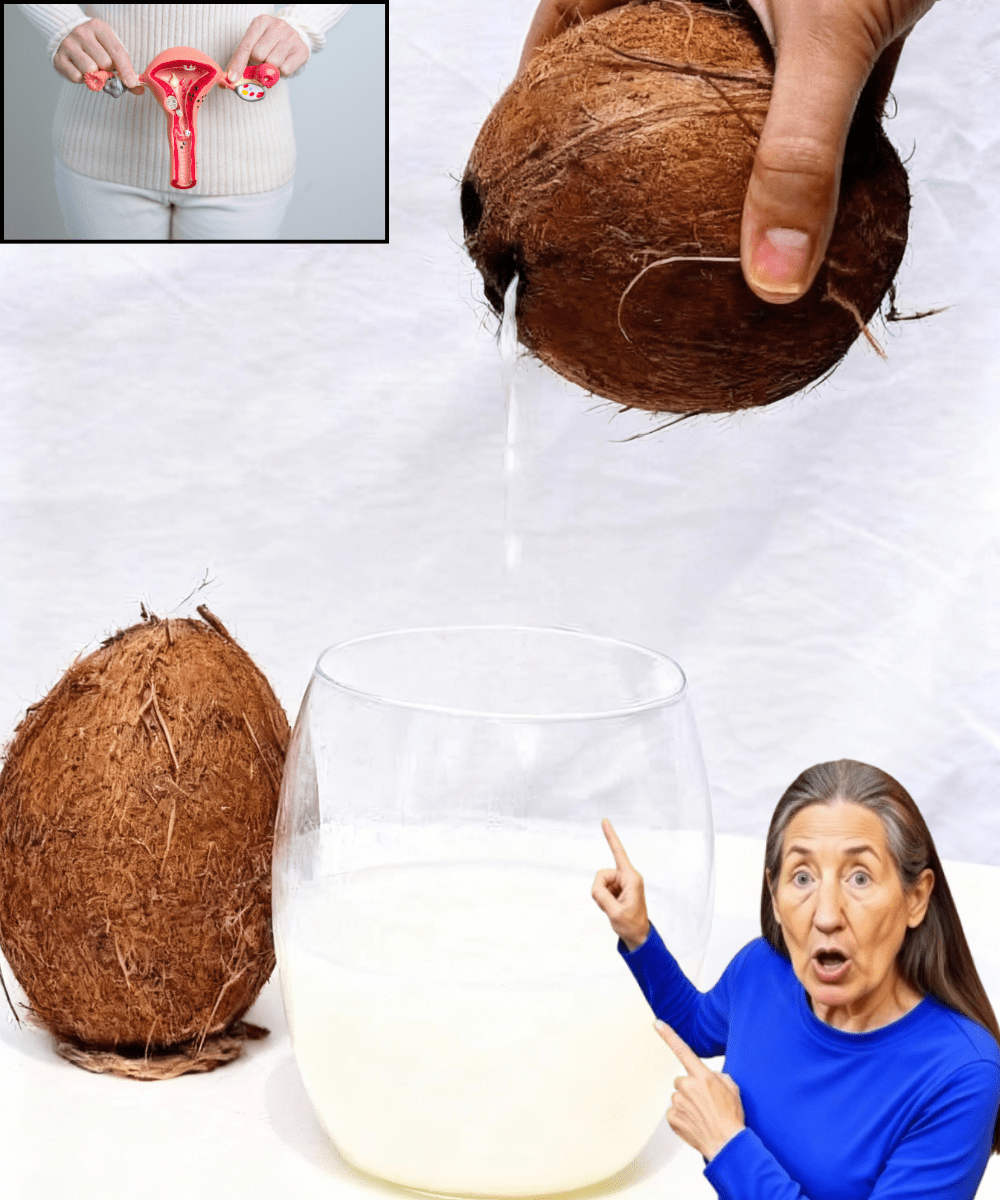Are you among the millions who rely on coconut water as your go-to beverage for hydration, energy, and electrolyte replenishment? Marketed as “nature’s sports drink,” this tropical elixir is rightfully celebrated for its clean, pure hydration and dense mineral profile, particularly its high potassium content. However, in the world of nutrition, even the healthiest foods have an optimal time and circumstance for consumption.
What if the very beverage you trust to boost your health could actively sabotage your performance, ruin your sleep, or even compromise your safety during a medical procedure?
The key to maximizing the extraordinary benefits of coconut water while completely avoiding its potential drawbacks lies in precise timing and context. In this comprehensive, in-depth guide, we move past the marketing hype to deliver the scientific facts. We will meticulously break down the three most critical scenarios where reaching for coconut water is not just unhelpful, but genuinely detrimental to your immediate well-being and bodily function. This essential reading will transform the way you view and consume this popular beverage, ensuring you harness its power correctly for maximum health gains.

🏋️ MISTAKE #1: THE PRE-WORKOUT TRAP – WHY COCONUT WATER SABOTAGES YOUR INTENSITY
It seems counterintuitive: a drink loaded with electrolytes must be the perfect fuel before a tough session, right? Wrong. The unique nutritional profile of coconut water makes it a fantastic recovery tool, but a poor choice for pre-exercise fueling, particularly before high-intensity or endurance workouts.
❌ The Low-Carb Energy Deficit
- The Fuel Requirement: Intense physical activity requires readily available glucose (carbohydrates) for sustained energy production. Your muscles rely on these stored carbs (glycogen) to power through a long run, heavy lift, or high-intensity interval training (HIIT) session.
- The Coconut Water Reality: While coconut water contains natural sugars, its overall carbohydrate concentration is low compared to commercial sports drinks or a solid pre-workout snack (like a banana or oatmeal). Relying on it for energy before exercise means you are entering your session with insufficient fuel, which can lead to premature fatigue, a decrease in performance, and an inability to maintain intensity. Your body will quickly burn through the small amount of available sugar, leaving you feeling drained mid-session.
❌ The Sodium-Potassium Imbalance
- Sodium Loss is Key: During heavy exercise, your body loses significant amounts of sodium through sweat. Sodium is the primary electrolyte lost and is crucial for maintaining fluid balance, nerve signaling, and muscle contraction.
- The High Potassium Problem: Coconut water is famously high in Potassium but relatively low in Sodium. Consuming a potassium-heavy, sodium-light fluid before a high-sweat activity can actually exacerbate the electrolyte imbalance. You risk diluting your already precious sodium levels further, potentially leading to a condition known as hyponatremia (abnormally low sodium concentration in the blood), which can cause muscle cramps, dizziness, and severe fatigue.
❌ The Diuretic Effect and Pre-Hydration
- Nature’s Flush: Coconut water possesses mild, natural diuretic properties, meaning it encourages the kidneys to increase urine output.
- Pre-Game Dehydration Risk: Drinking a diuretic fluid before a session means you are likely to experience frequent urination, potentially leading to a state of suboptimal hydration just as your workout begins. Starting a session already slightly dehydrated severely impairs performance and increases the risk of heat-related illness.
✅ THE RIGHT TIME: SAVE IT FOR RECOVERY
- Post-Workout Replenishment: Coconut water shines after exercise when the goal shifts from fueling to replenishing. Its high potassium is perfect for restoring intracellular fluid balance and aiding in muscle function after a period of intense exertion.
🌙 MISTAKE #2: THE BEDTIME DISRUPTOR – WHY IT RUINS DEEP SLEEP
You might view coconut water as a soothing, healthy alternative to sugary drinks before winding down, but for two key reasons, this choice can be a direct line to interrupted and non-restorative sleep.
❌ The Nighttime Bathroom Cycle
- Interrupting the Sleep Architecture: Sleep quality relies on uninterrupted cycles of light and deep sleep. As a powerful natural diuretic, drinking a large glass of coconut water too close to bedtime significantly increases the risk of Nocturia (waking up to urinate). Even one bathroom trip can disrupt your body’s sleep architecture, preventing you from entering the crucial deep REM sleep stages required for cognitive and physical repair.
❌ Blood Sugar and Sleep Hormone Interference
- Metabolic Rate Slowdown: As your body prepares for rest, the metabolic rate naturally slows. The small amount of natural sugar in coconut water, while healthy, can still trigger a slight rise in blood glucose levels.
- Hormonal Cascade: This blood sugar rise prompts the body to release insulin to manage the spike. This unexpected metabolic activity can interfere with the production of key sleep hormones, making it harder to fall asleep or remain asleep throughout the night. The ideal bedtime beverage should be neutral and non-stimulatory.
✅ THE RIGHT TIME: THE MORNING OR MID-DAY BOOST
- Metabolism Kickstart: The best time for coconut water is in the morning on an empty stomach to kickstart hydration and metabolism, or mid-day as a refreshing alternative to sugary sodas.

🏥 MISTAKE #3: BEFORE SURGERY OR MEDICAL PROCEDURES – THE CRITICAL RISK
This is the most serious warning and one that should be strictly adhered to: never consume coconut water in the immediate 24 hours leading up to a medical procedure involving anesthesia.
❌ Interfering with Blood Pressure and Anesthesia
- Natural Vasodilator Effect: Coconut water is known to have a mild, natural hypotensive effect (it lowers blood pressure) due to its high potassium and mineral content.
- Anesthesia Complications: During surgery, anesthesia and certain medications are precisely managed by the medical team to control blood pressure and heart function. Introducing a substance that independently lowers blood pressure can interfere with the calculated effects of the anesthesia, leading to unpredictable drops in blood pressure and potentially serious complications in the operating room.
❌ The Potassium Danger and Heart Function
- Hyperkalemia Risk: The high potassium content, while generally healthy, becomes a severe risk in a surgical context. Large amounts of potassium can directly affect heart rhythm and function. Maintaining a perfectly stable electrolyte balance is paramount before, during, and immediately after surgery.
- Medical Mandate: Doctors and anesthesiologists explicitly advise patients to avoid all foods and drinks that can alter blood clotting, blood sugar, or electrolyte levels for at least 24 to 48 hours before surgery. Coconut water falls squarely into the category of substances that must be avoided.
✅ THE RIGHT TIME: POST-OPERATIVE RECOVERY ONLY
- Under medical supervision, coconut water can be an excellent aid for post-operative recovery, helping to restore hydration and replace essential minerals lost during the fasting period. Always follow your doctor’s exact instructions regarding pre-operative fasting.
💡 MASTERING THE RITUAL: THE BEST WAY TO DRINK COCONUT WATER
To truly harness the benefits of this tropical gift, follow these guidelines:
- Hydrate in Moderation: Drink coconut water in moderation (one to two cups per day). Excessive consumption, particularly of packaged varieties, can lead to over-intake of potassium, which may cause temporary digestive upset.
- Ideal Timing: After Intense Exercise, First Thing in the Morning, or Mid-day as an instant energy and hydration boost.
- Opt for Purity: Always choose 100% pure, unadulterated coconut water without any added sugars, artificial flavors, or preservatives. The best source is directly from a young, green coconut.
- Pair with Food: If consuming a large amount, pair it with a balanced meal or snack containing healthy fats and protein. This slows the release of its natural sugars, preventing any rapid blood sugar fluctuations.
Coconut water is an incredible source of hydration, but remember that timing is everything. By avoiding these three critical mistakes, you ensure that you are treating your body to its rejuvenating properties exactly when they will deliver maximum benefit, keeping you safe, energized, and well-rested.
- Considering your fitness routine, what is the first swap you will make: plain water pre-workout or coconut water post-workout?
- Would you be interested in learning about other natural pre-workout hydration alternatives?






